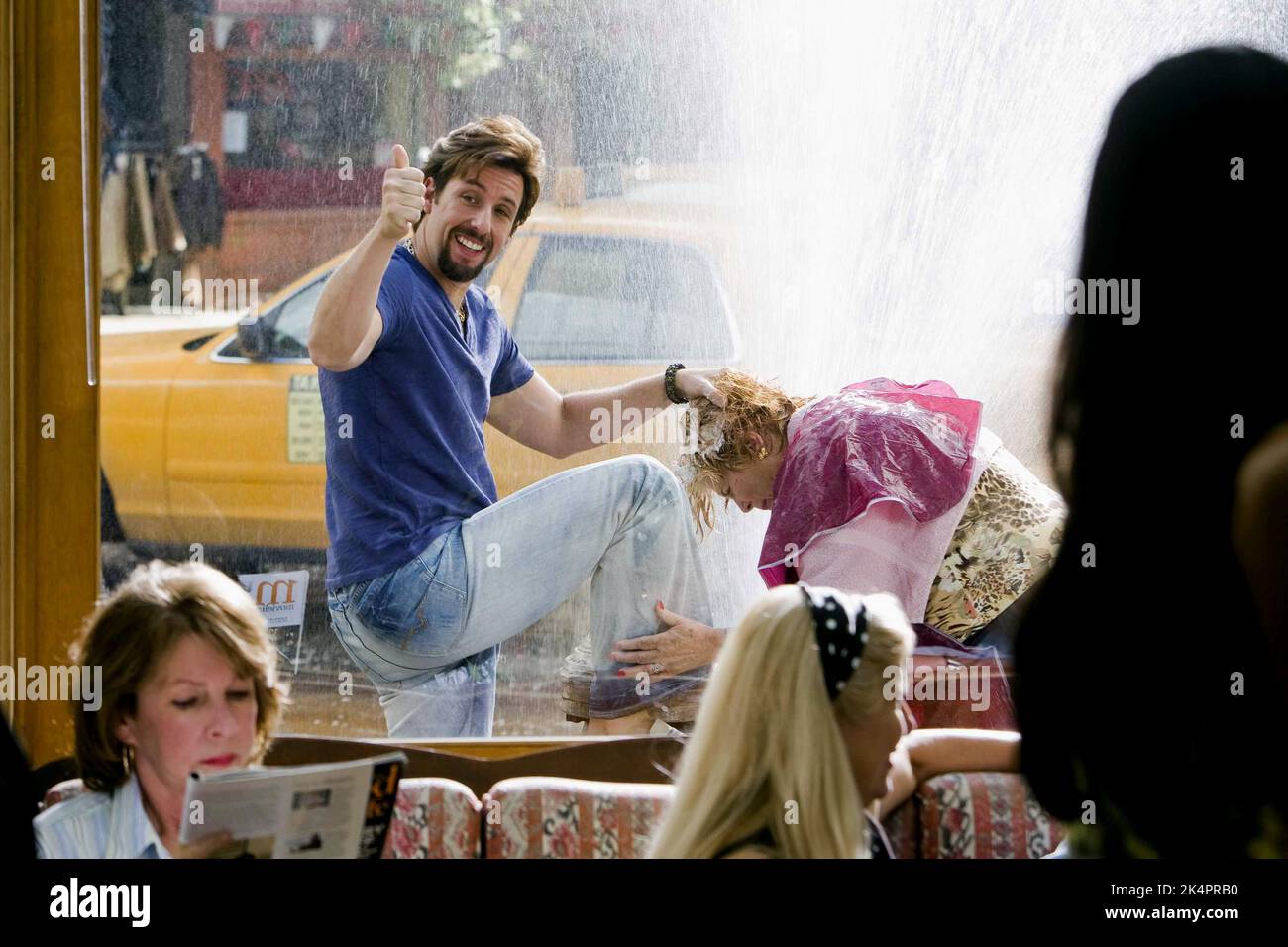The Zohan’s Character and Transformation: Adam Sandler You Don’t Mess With The Zohan

Zohan, the Israeli Mossad agent, embarks on a journey of self-discovery and transformation in the film “You Don’t Mess with the Zohan.” Driven by a desire for a peaceful life and a longing to pursue his passion for hairdressing, he fakes his own death and escapes to New York City. This decision stems from a deep-seated disillusionment with violence and a yearning for a different path.
Zohan’s Internal Conflict, Adam sandler you don’t mess with the zohan
Zohan’s journey is marked by a constant internal struggle between his past as a skilled soldier and his desire for a peaceful life. He grapples with the conflicting identities of a trained assassin and a compassionate individual. This internal conflict manifests in his interactions with others, as he constantly tries to reconcile his past with his present aspirations.
Key Moments of Transformation
Zohan’s transformation is evident in several key moments throughout the film. Initially, he uses his combat skills to defend himself and others, often resorting to violence. However, as he becomes more involved in the lives of the people around him, his perspective begins to shift.
- His interactions with the Palestinian barber, Dalia, challenge his preconceived notions and introduce him to a different way of life.
- His friendship with the aspiring hairdresser, Michael, fosters a sense of belonging and encourages him to embrace his true passion.
- The climax of the film, where Zohan chooses to protect his friends and the community from the threat of his former Mossad comrades, signifies a complete transformation. He chooses peace over violence, demonstrating a profound shift in his values.
Comparison of Zohan’s Personality
At the beginning of the film, Zohan is a confident and skilled soldier, driven by a sense of duty and patriotism. He is quick to anger and resorts to violence as a means of resolving conflict. However, by the end of the film, Zohan has become a more compassionate and understanding individual. He has learned to value peace and human connection over violence and has embraced his true passion for hairdressing. This transformation is evident in his newfound humility, his willingness to help others, and his genuine desire to live a peaceful life.
Themes of Identity and Cultural Clash

“You Don’t Mess with the Zohan” delves into the complex themes of cultural clash and assimilation, showcasing the struggles of an individual navigating between two distinct worlds. The film highlights the clash between Zohan’s Israeli heritage and the American culture he encounters, as he attempts to forge a new identity in a foreign land.
Zohan’s Israeli Heritage and American Culture
Zohan’s Israeli heritage is deeply ingrained in his personality and values. He is a proud and patriotic soldier, trained to be a formidable fighter. His life in Israel revolves around duty, honor, and a strong sense of nationalism. This contrasts sharply with the American culture he encounters in New York. America, in the film, is portrayed as a land of freedom, individualism, and a more laid-back lifestyle. Zohan’s initial struggle lies in reconciling his deeply ingrained Israeli identity with the new cultural norms he faces in America.
Zohan’s Identity Challenged and Redefined
Zohan’s journey in America is marked by constant challenges to his identity. Initially, he tries to suppress his past and create a new persona as a hairdresser, believing that this will allow him to embrace American culture. However, his past as a soldier keeps resurfacing, leading to humorous and sometimes dramatic confrontations. Zohan’s attempt to distance himself from his Israeli heritage highlights the complexities of assimilation. He finds himself caught between two worlds, struggling to find a place where he truly belongs.
Stereotypes and Prejudices Zohan Encounters
Zohan encounters a range of stereotypes and prejudices in New York. His Israeli background and his initial attempts to portray himself as a “tough guy” lead to misunderstandings and discrimination. He is often seen as a threat, and his actions are misinterpreted based on preconceived notions about Israelis. This highlights the challenges faced by immigrants who are often judged based on their nationality or origin, rather than their individual qualities.
Humor and Satire

“You Don’t Mess with the Zohan” is a comedy film that employs a wide range of comedic elements to deliver its humorous message. The film’s humor is a blend of physical comedy, slapstick, witty dialogue, and cultural satire. It’s through these elements that the film critiques societal norms, stereotypes, and cultural differences.
Physical Comedy and Slapstick
The film utilizes physical comedy and slapstick extensively, often relying on exaggerated movements and situations to create laughter. For example, Zohan’s exaggerated fighting style, his attempts to navigate American culture, and his comical hairdressing techniques are all examples of physical humor. The scene where Zohan tries to cut a customer’s hair with a sword is a classic example of slapstick, using exaggerated movements and sound effects to create humor.
Adam sandler you don’t mess with the zohan – Adam Sandler’s “You Don’t Mess with the Zohan” is a hilarious blend of action and comedy, showcasing Sandler’s signature brand of humor. The film’s zany plot, much like the heartwarming chaos of the uncle buck tv show , reminds us that life is often unpredictable and full of unexpected twists.
Both stories emphasize the importance of family, friendship, and finding laughter in the face of adversity, making them timeless comedic gems.
Adam Sandler’s “You Don’t Mess with the Zohan” is a riotous blend of action and comedy, a whirlwind of slapstick and surprising heart. The film’s comedic energy, a wild mix of physical humor and zany characters, echoes the unsettling, yet captivating, nature of laughter explored in the essay ” shakes the clown “.
Zohan’s journey from Israeli soldier to New York City hairdresser, a transformation both absurd and heartwarming, highlights the inherent duality of laughter, its ability to both comfort and provoke, just as Zohan’s comedic antics both entertain and challenge our preconceived notions.
